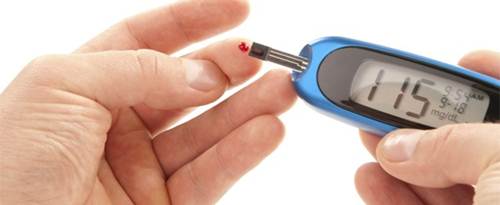
The term “diabetic heart disease” (DHD) refers to heart disease that develops in people who have diabetes. Compared with people who don’t have diabetes, people who have diabetes:
• Are at higher risk for heart disease
• Have additional causes of heart disease
• May develop heart disease at a younger age
• May have more severe heart disease
Fast Fact
People who have type 1 or type 2 diabetes can develop DHD. The higher a person’s blood sugar level is, the higher his or her risk of DHD.
Diabetes affects heart disease risk in three major ways.
- Diabetes alone is a very serious risk factor for heart disease, just like smoking, high blood pressure, and high blood cholesterol. In fact, people who have type 2 diabetes have the same risk of heart attack and dying from heart disease as people who already have had heart attacks.
- Second, when combined with other risk factors, diabetes further raises the risk of heart disease. Although research is ongoing, it’s clear that diabetes and other conditions—such as overweight and obesity and metabolic syndrome—interact to cause harmful physical changes to the heart.
- Third, diabetes raises the risk of earlier and more severe heart problems. Also, people who have DHD tend to have less success with some heart disease treatments, such as coronary artery bypass grafting and percutaneous coronary intervention, also known as coronary angioplasty.
What Is Diabetes?
Diabetes is a disease in which the body’s blood glucose (sugar) level is too high. Normally, the body breaks down food into glucose and carries it to cells throughout the body. The cells use a hormone called insulin to turn the glucose into energy.

The two main types of diabetes are type 1 and type 2. In type 1 diabetes, the body doesn’t make enough insulin. This causes the body’s blood sugar level to rise.
In type 2 diabetes, the body’s cells don’t use insulin properly (a condition called insulin resistance). At first, the body reacts by making more insulin. Over time, though, the body can’t make enough insulin to control its blood sugar level.
What Heart Diseases Are Involved in Diabetic Heart Disease (DHD)?
DHD may include coronary heart disease (CHD), heart failure, and/or diabetic cardiomyopathy.
Coronary Heart Disease (CHD)
In CHD, a waxy substance called plaque builds up inside the coronary arteries. These arteries supply your heart muscle with oxygen-rich blood. Plaque is made up of fat, cholesterol, calcium, and other substances found in the blood. When plaque builds up in the arteries, the condition is called atherosclerosis.
Plaque narrows the coronary arteries and reduces blood flow to your heart muscle. The buildup of plaque also makes it more likely that blood clots will form in your arteries. Blood clots can partially or completely block blood flow.
CHD can lead to chest pain or discomfort called angina, irregular heartbeats called arrhythmias, a heart attack, or even death.
Heart Failure

Heart failure is a condition in which your heart can’t pump enough blood to meet your body’s needs. The term “heart failure” doesn’t mean that your heart has stopped or is about to stop working. However, heart failure is a serious condition that requires medical care. If you have heart failure, you may tire easily and have to limit your activities. CHD can lead to heart failure by weakening the heart muscle over time.
Diabetic Cardiomyopathy
Diabetic cardiomyopathy is a disease that damages the structure and function of the heart. This disease can lead to heart failure and arrhythmias, even in people who have diabetes but don’t have CHD.
WHAT YOU NEED TO DO
If you have diabetes, you can lower your risk of DHD. Making lifestyle changes and taking prescribed medicines can help you prevent or control many risk factors.
Taking action to manage multiple risk factors helps improve your outlook. The good news is that many lifestyle changes help control multiple risk factors. For example, physical activity can lower your blood pressure, help control your blood sugar level and your weight, and reduce stress.
It’s also very important to follow your treatment plan for diabetes and see your doctor for ongoing care. If you already have DHD, follow your treatment plan as your doctors advises. This may help you avoid or delay serious problems, such as a heart attack or heart failure.
Article From : – http://www.ijn.com.my

Leave a Reply